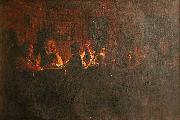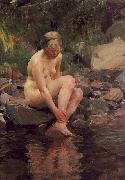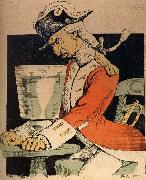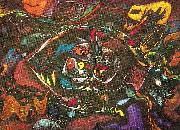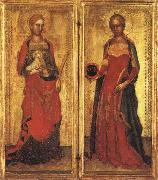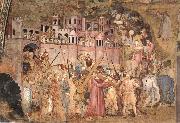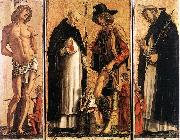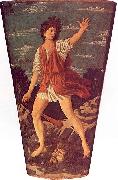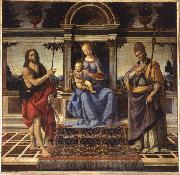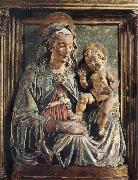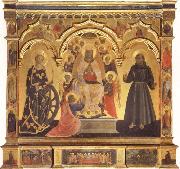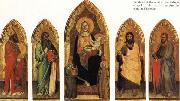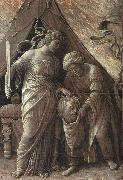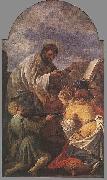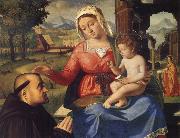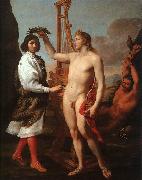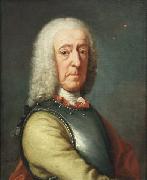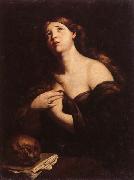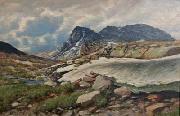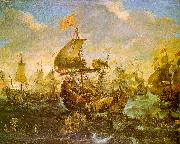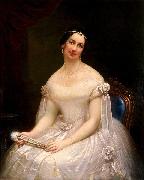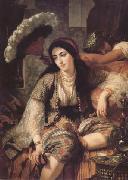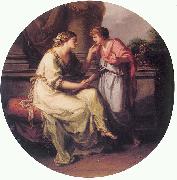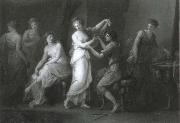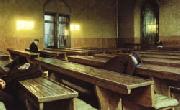|
|
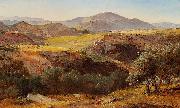 |
Anders Lunde
|
|
(1809- 1886 )
painted Italiensk Bjerglandskab. Parti fra omegnen af Subiaco
Anders Christian Lunde |
|
|
|
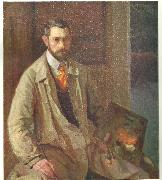 |
anders trulson
|
|
1874-1911
Anders Trulson, född 14 juli 1874 i Tosterup, död 23 augusti 1911 i Italien, var en svensk konstnär.
Anders Trulson föddes i Tosterup, där fadern var kusk på ett gods. Han fick sin utbildning i Köpenhamn och Stockholm, och blev enligt flera en dansksvensk blandning. Han bodde flera år i Lund innan hans utlandsresor började 1905, bland annat till Paris och Bregge. Trulson dog 1911 bara 37 år gammal på resa i Italien. 1902 var han med och grundade Skånska konstnärslaget som tillsammans med Konstföreningen för södra Sverige var centrum för det skånska konstlivet. Skånes konststil och liv var till stor del utanför övriga Sveriges, inte minst landskapsmåleriet vilket var präglat av ett eget färgspel. |
|
|
|
 |
Andien de Clermont
|
|
Andien de Clermont (d.1783) was a French artist who worked in England in the 18th century (ca.1716-1756). He was particularly known for his decorative flower paintings in the Rococo style, and for "singeries, chinoiseries, and turqueries." He decorated interiors at Kirtlington Park, Langley Hall, Wentworth Castle, Wilton House, and "the second earl of Strafford's (now destroyed) dining room at No. 5 St. James's Square, London."
|
|
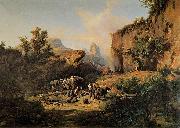 |
Andras Marko
|
|
painted Landscape with Charcoal Burners in 1861 |
|
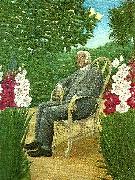 |
andre bauchant
|
|
Andre Bauchant (April 24 1873 -- August 12 1958) was a French 'naive' painter whose compositions were often informed by mythology and Classical History. He originally worked as a market gardener, after his father, before serving in World War I. He later trained as a mapmaker before deciding on a career as an artist.
Bauchant was born in Chateau-Renault, Indre-et-Loire. His first exhibit was in 1920 at the Salon d'Automne. In 1927 he was commissioned by Diaghilev to design sets for Stravinsky's Apollon Musagete. |
|
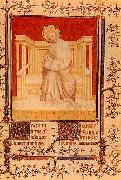 |
Andre Beauneveu
|
|
Netherlandish Gothic Era Painter and Sculptor, 1335-ca.1401 |
|
|
|
|
|
|
|
|
|
|
|
|
|
|
|
|
|
|
|
|
|
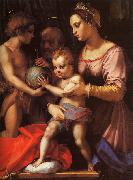 |
Andrea del Sarto
|
|
b.July 16, 1486, Florence
d.Sept. 28, 1530, Florence
Italian Andrea del Sarto Galleries |
|
|
|
|
|
|
|
|
|
|
|
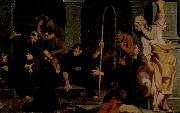 |
Andrea Lilio
|
|
Andrea Lilio (1555/1570 - after 1639) was an Italian painter born in Fano, not far from Ancona, hence he also is known as L'Anconitano.
Die Geschichte des Hl. NikolausHe painted mainly in his native city, as well as in Rome, where he was active from the beginning of the 17th century until around 1640. He was employed by Pope Sixtus V in the decoration of the library of the Vatican and in the decoration of the Scala Santa in San Giovanni Laterano. In the latter, he painted, Moses striking the Rock and Moses with the Brazen Serpent.
Said to have been a pupil of Federico Barocci, he painted in a Mannerist style, already outdated in Baroque Rome at the time. Nevertheless, Lilio created a popular niche for himself by painting allegories for aristocratic audiences. In fact, it is altogether possible that Lilio collaborated for the illustrations of Cesare Ripa's Iconologia, which was a popular source for such motifs for a very long time. He died at Ascoli Piceno.
In a chapel of the Chiesa Nuova, he painted The Archangel Michael driving fallen angels from Heaven. He continued to ornament churches and convents of Rome during the reign of Pope Clement VIII.
One of his masterpieces, the Martyrdom of Saint Lawrence, was painted for Santa Caterina in Ancona. He painted the Christ Washing the Feet of His Disciples for the nave of Santa Maria Maggiore in Rome. He also was part of the team active in the painting of the Sistine chapel (chapel of Nativity) in Santa Maria Maggiore. For the cathedral of Fano, he painted a picture of All Saints. |
|
 |
Andrea Locatelli
|
|
was an Italian painter of landscapes (vedute). 1695-1741
Born in Rome, he was the son and pupil of the painter Piero Locatelli, who had studied with the Florentine Ciro Ferri. He next apprenticed under Paolo Anesi, although his style and thematic is akin to that of Claude Lorrain, and depicts small mythologic figures although within a wild environment more similar to those of Salvator Rosa. He is also known as Andrea Lucatelli. Andrea excelled in painting vedute in a style reminiscent of Jan Frans van Bloemen, one of the Bamboccianti. One of his pupils was Joseph Vernet.
|
|
|
|
|
|
|
|
|
|
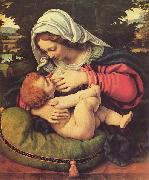 |
Andrea Solario
|
|
Andrea Solari (also Solario) (1460 in Milano - 1524) was an Italian Renaissance painter. He was initially named Andre del Gobbo, but more confusingly as Andrea del Bartolo a name shared with two other Italian painters, the 14th Century Siennese Andrea di Bartolo, and the 15th Century Florentine Andrea di Bartolo. |
|
|
|
|
|
|
|
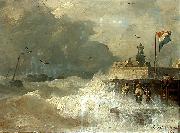 |
Andreas Achenbach
|
|
(September 29, 1815 - April 1, 1910) was a German landscape painter.
Born at Kassel, he began his art education in 1827 in Desseldorf under Friedrich Wilhelm Schadow at the Desseldorf Academy of Painting. He studied at St Petersburg and travelled in Italy, Holland and Scandinavia.In his early work he followed the pseudo-idealism of the German romantic school, but on removing to Munich in 1835, the stronger influence of Louis Gurlitt turned his talent into new channels, and he became the founder of the German realistic school. Although his landscapes evince too much of his aim at picture-making and lack personal temperament, he is a master of technique, and is historically important as a reformer. The Chambers Biographical Dictionary says of him that "he was regarded as the father of 19th century German landscape painting."
A number of his finest works are to be found at the Berlin National Gallery, the New Pinakothek in Munich, and the galleries at Dresden, Darmstadt, Cologne, Desseldorf, Leipzig and Hamburg.
He died in Desseldorf.
His brother, Oswald Achenbach (1827-1905), was also a painter.
|
|
|
|
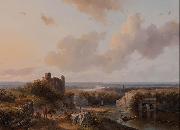 |
Andreas Schelfhout
|
|
(February 16, 1787, The Hague - April 19, 1870, The Hague) was a Dutch painter, etcher and lithographer, known for his landscape paintings.
He belongs to the Romantic movement. His Dutch winter scenes and frozen canals with skaters were already famous during his lifetime. He became one of the most influential Dutch landscape artists of his century.
He started as a house painter in the framing business of his father. He already started painting pictures in his spare time. After a well-received first exhibition in The Hague, his father sent him to receive proper training to Joannes Breckenheimer (1772-1856), a stage designer, in The Hague. He learned not only the technical aspects of painting, but also made detailed studies of the 17th-century Dutch landscape artists Meindert Hobbema en Jacob van Ruisdael.
In 1815 he started his own workshop. Through his technical excellence and sense of composition and his use of naturalistic colours, he soon became famous also outside The Hague. In 1819 he was awarded the Gold Medal at the exhibition in Antwerp. In 1818 he became a member of the Royal Academy for Visual Arts of Amsterdam. He reputation continued to grow and in1822 he was given the rank of Fourth Class Correspondent of the Royal Dutch Institute. From then on, one exhibition followed after another.
Initially he painted mainly summer scenes, beach scenes, and animal paintings. But as his initial winter scenes even had more success, he began to include them in his exhibitions. He was mainly a studio artist, relying on his sketches done en plein air. His sketchbook Liber Veritatis (Book of Truth) shows that he made about twenty paintings a year, among them a few foreign views. This indicated that he travelled abroad around 1825. In later years he visited France in 1833, England in 1835 (especially to study the works of Constable) and Germany.
He provided training to several painters who would become famous in their own right : Johan Hendrik Weissenbruch, Johan Jongkind (one of the forerunners of the Impressionists), Charles Leickert, Jan Willem van Borselen, Nicholas Roosenboom, Willem Troost, the American Hudson River School Painter Louis Remy Mignot and his son-in-law Wijnand Nuyen.
At the end of his career he put together a series of eighty landscape drawings, mainly recordings of previous paintings and watercolours. They were drawn in chalk and lightly coloured.
His death marked the end of the Romantic period in Holland. He is considered a precursor of the Hague School
|
|
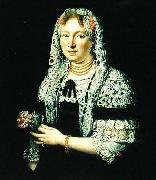 |
Andreas Stech
|
|
painted Portrait of a Patrician Lady from Gdansk in 1685 |
|
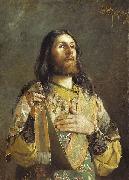 |
Andrei Ryabushkin
|
|
(Russian:29 October [O.S. 17 October] 1861 - 10 May [O.S. 27 April] 1904) was a Russian painter. His major works were devoted to life of ordinary Russians of the 17th century.
Andrey Petrovich Ryabushkin was born in the village Stanichnaya sloboda, Borisoglebskiy uezd, Tambov gubernia in 1861. His father and brother were icon painters, and he started to help them from his early childhood. At 14 years old he became an orphan. A student of Moscow School of Painting, Sculpture and Architecture A. Kh. Preobrazhensky, who spent the summer in the village, happened to see the boyes drawings and was greatly impressed by them. He started to give him lessons and helped him to enter the Moscow School of Painting, Sculpture and Architecture. Ryabushkin was one of the youngest student of the school at all times.
Ryabushkin stayed for seven years (1875-82) in the Moscow School, learning from Vasily Perov and Illarion Pryanishnikov. His first large work Peasant Wedding was bought by Pavel Tretyakov in 1880. After the death of Vasiliy Perov, Ryabushkin moved to Saint Petersburg in 1882, and entered the Imperial Academy of Arts where he learned from Pavel Chistyakov. The classes soon disappointed him, however, and he began to spend more and more time either in the library of the academy or sketching in the streets.
His studies at the academy came to an end in 1892. He did not receive an award for his diploma work, Descent from the Cross, as was expected, because he did not follow the approved project. But the work was so good that the president of the academy, Grand Duke Vladimir Konstantinovich, provided Ryabushkin with a stipend for travel and studies abroad from his own means. Instead of going to Italy or Paris, Ryabushkin chose to make a tour of ancient Russian towns (Novgorod, Kiev, Moscow, Uglich, Yaroslavl). The inhabitants of them became his first models and his first critics. |
|
|
|
|
|
|
|
|
|
|
|
 |
ANGELICO Fra
|
|
Italian Early Renaissance Painter, ca.1387-1455 |
|
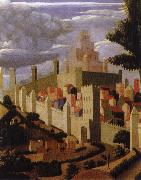 |
Angelico Fra
|
|
Italian painter, illuminator and Dominican friar. He rose from obscure beginnings as a journeyman illuminator to the renown of an artist whose last major commissions were monumental fresco cycles in St Peter and the Vatican Palace, Rome. He reached maturity in the early 1430s, a watershed in the history of Florentine art. None of the masters who had broken new ground with naturalistic painting in the 1420s was still in Florence by the end of that decade. The way was open for a new generation of painters, and Fra Angelico was the dominant figure among several who became prominent at that time, including Paolo Uccello, Fra Filippo Lippi and Andrea del Castagno. By the early 1430s Fra Angelico was operating the largest and most prestigious workshop in Florence. His paintings offered alternatives to the traditional polyptych altarpiece type and projected the new naturalism of panel painting on to a monumental scale. In fresco projects of the 1440s and 1450s, both for S Marco in Florence and for S Peter's and the Vatican Palace in Rome, Fra Angelico softened the typically astringent and declamatory style of Tuscan mural decoration with the colouristic and luminescent nuances that characterize his panel paintings. His legacy passed directly to the second half of the 15th century through the work of his close follower Benozzo Gozzoli and indirectly through the production of Domenico Veneziano and Piero della Francesca. Fra Angelico was undoubtedly the leading master in Rome at mid-century, and had the survival rate of 15th-century Roman painting been greater, his significance for such later artists as Melozzo da Forli and Antoniazzo Romano might be clearer than it is.
|
|
|
|
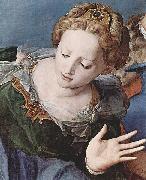 |
Angelo Bronzino
|
|
(November 17, 1503 - November 23, 1572), usually known as Il Bronzino, or Agnolo Bronzino (mistaken attempts also have been made in the past to assert his name was Agnolo Tori and even Angelo (Agnolo) Allori), was an Italian Mannerist painter from Florence. The origin of his nickname, Bronzino is unknown, but could derive from his dark complexion, or from that he gave many of his portrait subjects.
Bronzino was born in Florence. According to his contemporary Vasari, Bronzino was a pupil first of Raffaellino del Garbo, and then of Pontormo. The latter was ultimately the primary influence on Bronzino's developing style and the young artist remained devoted to his eccentric teacher. |
|
|
|
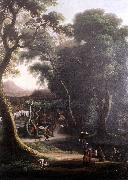 |
ANGELUCCIO
|
|
Italian painter, Roman school (active 1640-1650 in Rome) |
|
|








